Our Survival Hinges on Future-Proof Sustainability, Urges JICA’s Chief Sustainability Officer
2024.06.03
Although often used in the context of protecting the environment or promoting social well-being, the word “sustainability” can refer to many different things. The concept is particularly relevant today in the light of climate change and other global challenges that could threaten our ways of life. On the eve of World Environment Day on June 5, Vice President and Chief Sustainability Officer (CSO) Muto Megumi describes the various initiatives JICA is undertaking for a sustainable future.
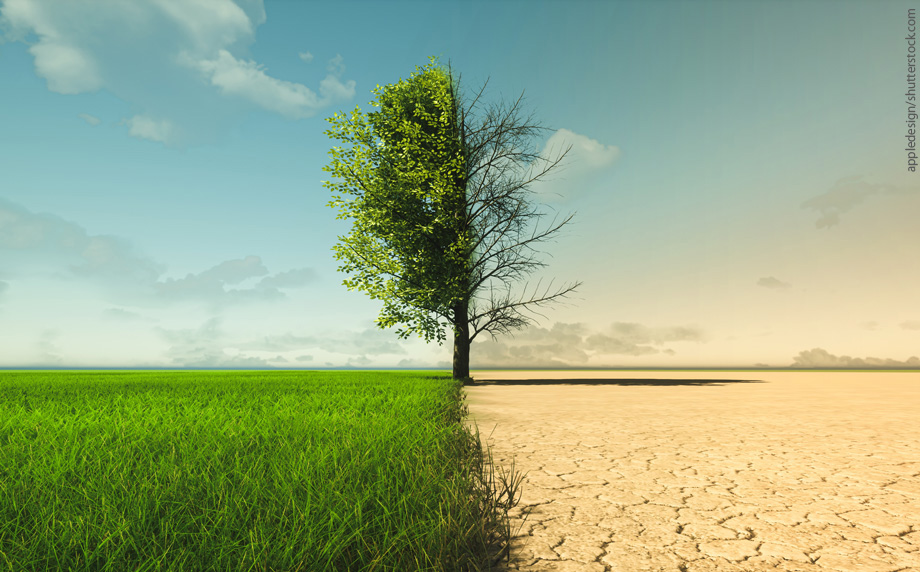
Humanity is facing a triple planetary crisis of climate change, biodiversity loss, and air pollution. The rates of economic and population growth were already considered unsustainable more than half a century ago, and now the world is facing not just “limits to growth” but the “growth of limits.”
This warning was made by a UN Environment Programme (UNEP) expert in March 2024 at the UN Environment Assembly in Nairobi, Kenya. It sparked in Muto, who was sitting next to the speaker, a renewed sense of alarm about the crisis confronting humanity.
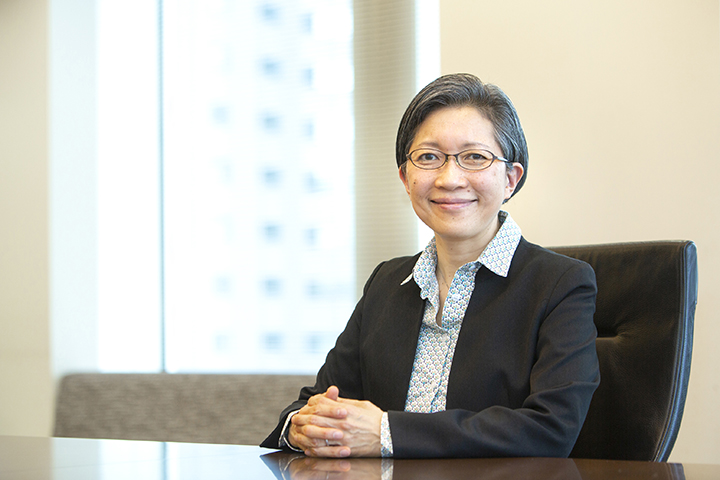
Muto Megumi is JICA’s Vice President and Chief Sustainability Officer.
Using the framework of the “planetary boundaries” that humanity should not cross if it seeks to prevent large-scale damage, the UNEP found that three broad areas—climate change, biodiversity loss, and pollution—have already crossed their boundaries. The root cause of the crisis, it reported, was the unsustainable way in which the global economy operates premised on mass production and consumption.
According to the UNEP’s Global Resources Outlook 2024, moreover, the extraction and processing of material resources (fossil fuels, minerals, nonmetallic minerals, and biomass) account for over 55% of greenhouse gas (GHG) emissions, while agricultural methods and use of forestry resources account for over 90% of biodiversity loss and water stress.
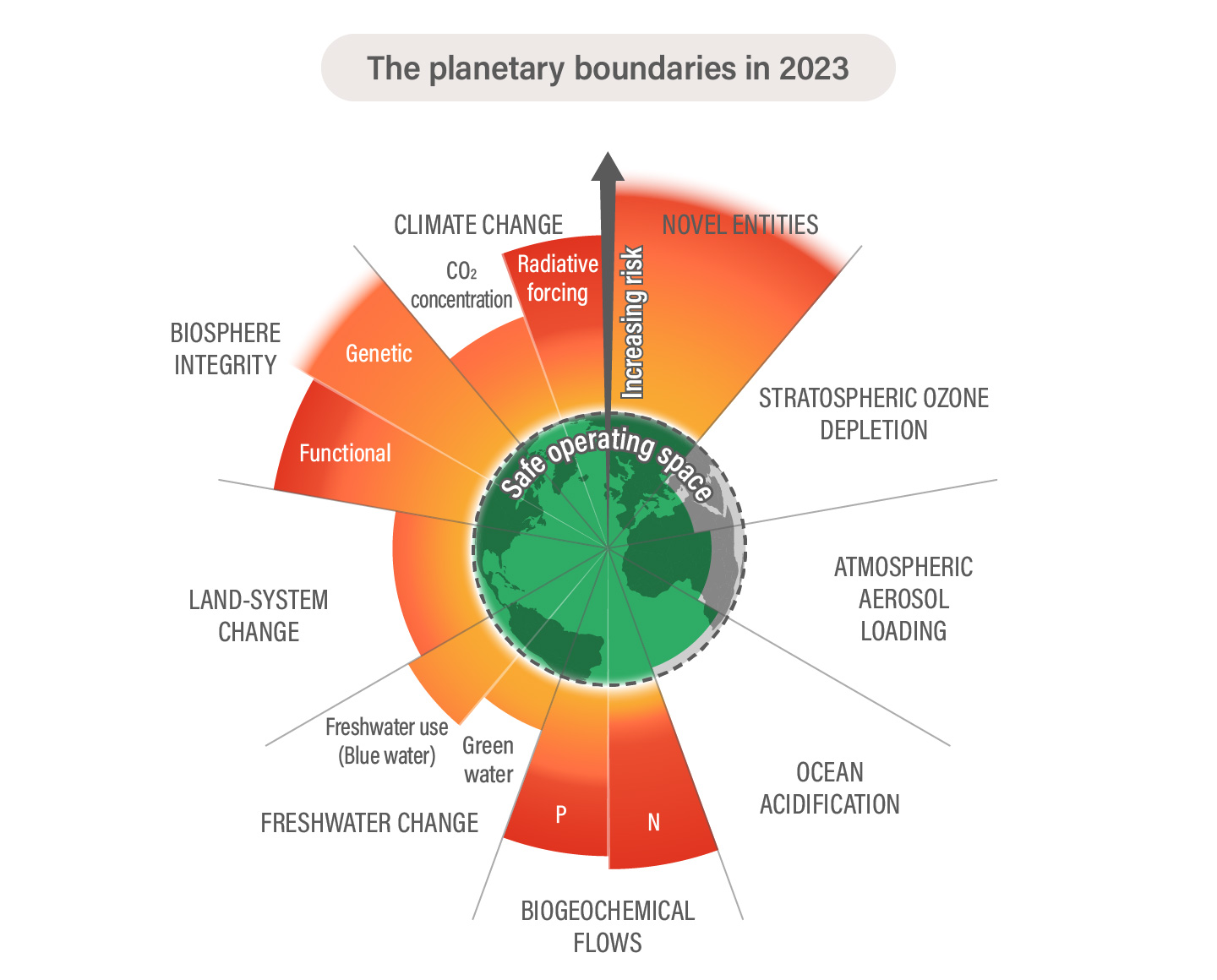
The planetary boundaries concept is a way of objectively measuring the impact human activity is having on the Earth system. As long as activities remain within the respective boundaries, humanity can continue to develop and thrive. If they are crossed, however, irreversible changes with serious consequences may occur. Particularly high-risk boundaries are those for climate change, biosphere integrity, biogeochemical flows of nitrogen and phosphorus, and novel chemical entities. (Source: Azote for Stockholm Resilience Centre, based on analysis in Richardson et al 2023)
“What these findings show is that the finite resources and natural gifts of our planet are being overused due to the relentless human pursuit of economic growth,” Muto comments. “We’ve reached a point where our survival hinges on acknowledging the situation we find ourselves in and changing the rules of society and economy.”
For this, she admits, “there are no simple solutions.” But there is a need to change the way we think and act considering the Earth’s limits in all the decisions made by society and businesses, as well as in all the consumption and lifestyle choices made by individuals. Her participation in the UN Environment Assembly reshaped her own ideas about sustainability and her convictions on the need to broadly communicate this message.
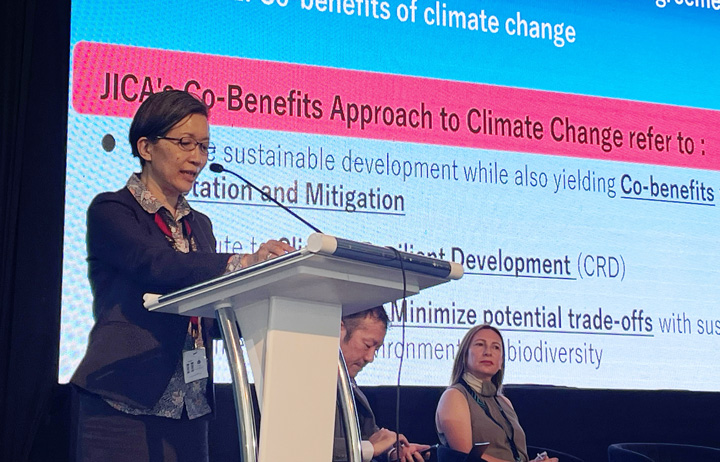
Muto delivers a speech during a side event at the March 2024 UN Environment Assembly.
JICA has long promoted the sustainable growth of economies around the world. But Muto believes that new approaches are needed, now that the planet’s limits have become clearer.
“Until now, we regarded economic growth as being ‘sustainable’ as long as negative impacts like GHG emissions and ecosystem damage could be minimized,” Muto says. “But if we’ve already exceeded the limit of the planet’s capacity to cope with such adverse consequences, we need to fundamentally change the nature of growth. We have to not only avoid negative impacts but also encourage the recycling of resources, restoration of nature, and coexistence with local communities. This means redefining growth in a new way and approaching sustainability from drastically different perspectives using updated standards.”
In the early 2010s, Muto oversaw the formulation and financing of an airport on a small island adjacent to the island of Bohol in the Philippines when she was a division chief in charge of JICA’s cooperation projects in the country. The airport was intended to bolster the local economy through increased tourism and job creation. But she also made a point of ensuring that it did not negatively affect the surrounding waters and natural environment. Learning from the efforts to build a new airport in Okinawa, she supported consultations with local residents and the implementation of environmental safeguards. Muto ensured the region’s sustainable development by promoting renewable energy use and energy efficiency measures, such as through the installation of solar panels on the roof of the passenger terminal building, and also by providing technical assistance on limiting the number of visitors to within the region’s “environmental capacity.”
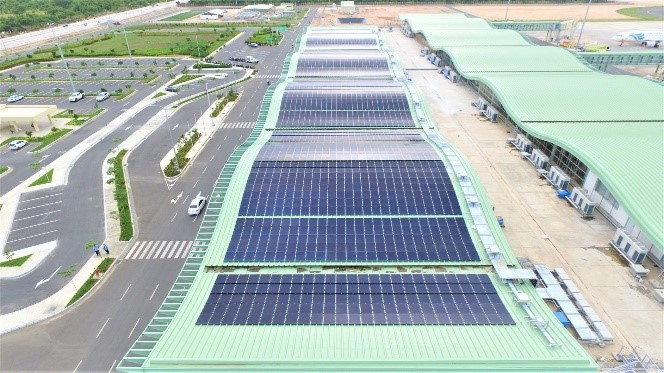
The Bohol-Panglao International Airport was completed in 2018. With solar panels covering the curved roof of the terminal building and a high-efficiency air-conditioning system, it was considered the first “eco-airport” in the Philippines.
Still, looking back on the project, Muto feels that more could have been done to enhance future-proof sustainability. “Obviously, an increased number of flights is going to mean greater GHG emissions. So if the project were being implemented today, we would have assumed the use of sustainable aviation fuel. And we may have incorporated blue carbon measures to capture GHGs using seagrasses and coral reefs in the coastal ecosystem. We would also have given greater thought to the green procurement and recycling of construction materials. And social sustainability would have been enhanced were the airport made to function as a regional center for disaster preparedness and response.” Even given that new technologies and innovations are constantly emerging, “We thought we did everything we could at the time,” she recalls, “but in hindsight, I think we could have done much more.”
Since many planetary boundaries have already been crossed, JICA needs to give greater thought to sustainability and adopt new perspectives and assessment criteria in all its development projects. “Business as usual is no longer tenable,” Muto insists. “We mustn’t content ourselves with formulas that worked in the past. We need to develop our own standards that meet the challenges of future generations.”
In April 2023, JICA created the Office for Sustainability Management to promote sustainability initiatives throughout the organization, and in October, Muto was appointed Chief Sustainability Officer. Under her leadership, the JICA Sustainability Policy was established outlining actions JICA should take “to realize a ‘sustainable world’ in which the three dimensions—economy, society, and the environment—are in harmony and no burden is left for future generations.” The policy calls for JICA to become carbon neutral by 2030 in its Scope 1 and 2 emissions and to “implement all new projects in a manner aligned with the goals of the Paris Agreement.”*
* The Paris Agreement is an international framework to reduce post-2020 greenhouse gas emissions. Click here for details on the UNFCCC site.
JICA’s efforts have just begun, however. “We need people with a good grasp of the complex sustainability challenges to advance development projects in a cross-sectoral manner with an integrated sustainability perspective,” says Muto. Essential in this regard will be partnering with private companies and research institutions—as well as private financial institutions for fund mobilization—to promote innovation and bolster impact within the Earth’s limits. “As we face quickly the planet’s boundaries, we’ll increasingly be called upon to go beyond our personal skill sets and work with people from many different backgrounds to design national and regional sustainability.” Muto has high expectations in the ability of the younger generations to steer the world toward a more sustainable future.
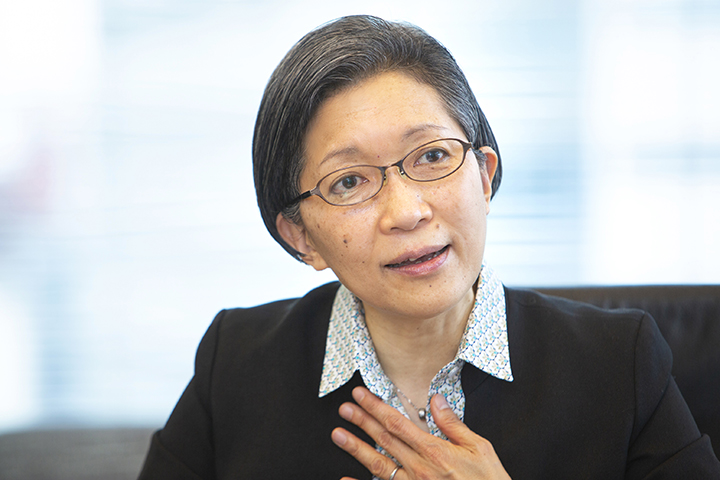
Younger people, Muto feels, have a keener sense of what must be done now to save our planet for the next century.
One of the most memorable comments Muto heard during a seminar hosted by NGO representatives and ethnic minorities from developing countries at the UN Environment Assembly was that this was no time to be fighting and that we should be talking more to each other. “There isn’t a single solution that can be identified and implemented to achieve sustainability,” Muto emphasizes. “It’s important for people of all ages in all countries to not only reexamine their own lifestyles but also to question current patterns of production and consumption, to rethink humanity’s ways, and to pursue pathways to broader collective action.”
scroll